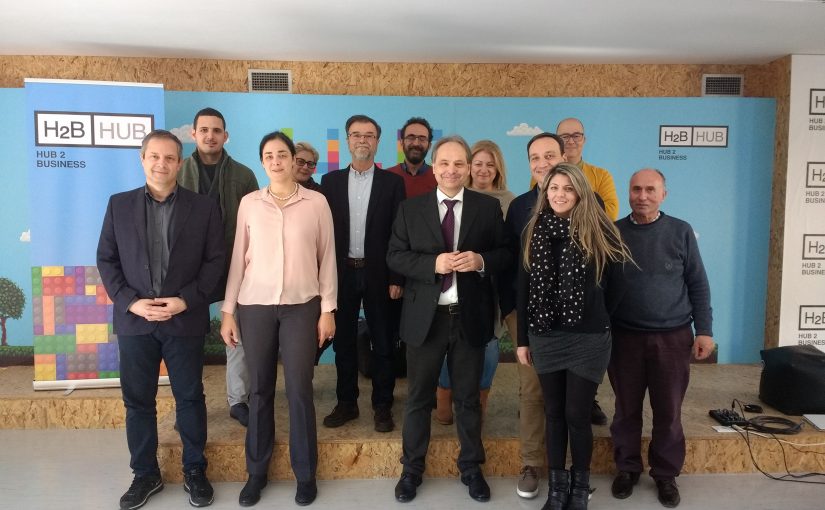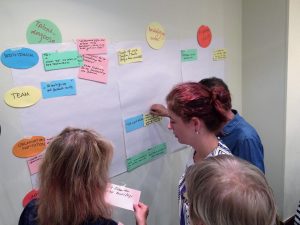Researchers have evaluated tools in several EU countries and are presenting the results at a conference.
New measures against youth unemployment were examined by labor scientists from the Ruhr-Universität Bochum (RUB) together with international partners in the EU-funded project „Job Developer“. From 2015 to 2018, the project team developed a certification program that enables experienced professionals to train as consultants to help young people seeking employment on their way to self-employment.
Individual development plan for every jobseeker
The project trained 55 Job Developers who helped 70 young people from Bulgaria, Hungary, Greece, Spain, and Lithuania to develop their own business ideas in the form of services or products, depending on the potential in each of the countries. So, over 100 new ideas where generated. The marketability of those where tested, for example with 20 ideas being put under scrutiny in the region of Grabovo, Bulgaria. „The most popular services there were in the field of electrical installation, herbal healing consultants and gardeners,“ says Dr Martin Kröll, coordinator of the project. For each young person, a long-term personal development plan was developed during the course of the consultation.
Certification Program for Job Developer
The Job Developers used three tools during the consultation process: the Talent Diagnosis, with which they worked out the individual strengths of the jobseekers; the Employment Radar, which analysed the potentials in the local employment environment; and the Expert Hearing, which brought the jobseekers into contact with established professionals who have a network in their respective industries. These concepts come from the organisation Minipreneuere; they where adapted to the cultural, legal and structural framework of the participating countries and then evaluated.
The project resulted in a certification program in English and German, consisting of five self-study modules. The Job Developer training enables individuals to organise and conduct the Talent Diagnosis, Employment Radar, and Expert Hearing.
Feasibility study evaluates the three tools
The feasibility study showed that individual strengths of adolescents can be revealed with the Talent Diagnosis. The tool also promotes the self-confidence of jobseekers and provides a starting point for career counselling. However, the Job Developers noted that it was a challenge to use the tests to identify the skills that young people could still develop. Resistance could also exist if IT-based tests caused high acquisition costs and too many talent promotion concepts could no longer be reconciled.
The Employment Radar was seen by study participants as a structured and creative methodology to make market development more transparent and to identify employment potential in a region. However, in the context of this measure, the adolescents reveal their business concepts to other participants and experts, and expressed concern about theft of ideas. Organisationally, the analysis of the market interviews was a particular challenge due to the volume of data.
Above all, the participants saw the potential of Expert Hearings in the direct contact with the experts who inspired, motivated and encouraged the young people to reflect on their professional development. „This element helps to close the gap between the education system and the demands of the labour market,“ concludes Martin Kröll. Problems arose in the practical implementation, for example because experts were rarely available or did not communicate with the jobseekers on equal footing.




